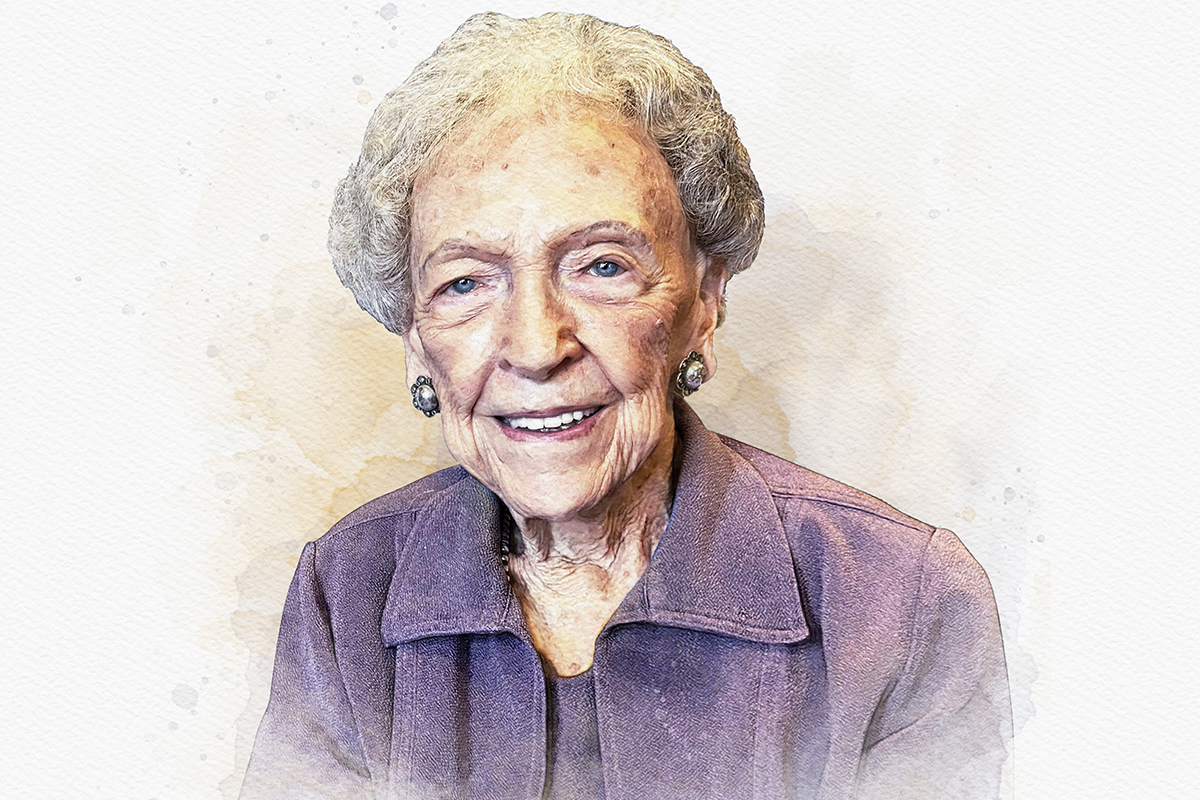More than just a fashion atelier, Rightfully Sewn is a garment business whose vision is to revitalize KC’s once-booming garment industry by creating a community that not only nurtures local fashion talent but also fosters a labor force to produce the goods.
“We have really talented people here in the city, both on the design side and the production side, so combined we have the skills to make the KC fashion industry of days past a reality once again,” says Shelby Ellis, a pattern and design assistant at Rightfully Sewn. “We just need to put the needle to fabric and make it happen.”
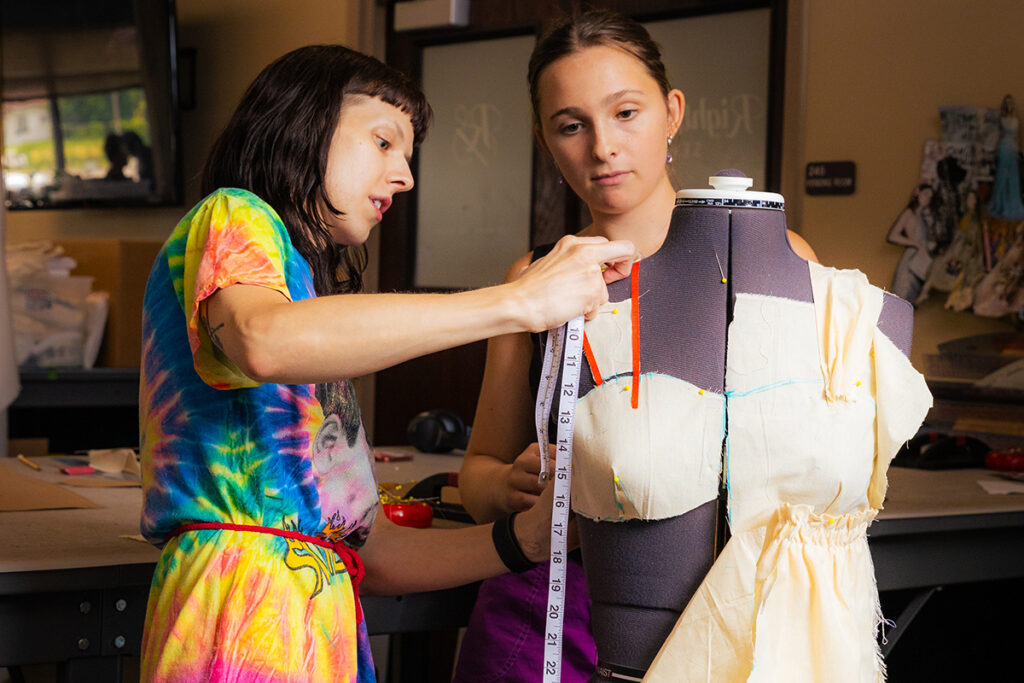
Unbeknownst to many Kansas Citians, KC actually clothed much of America throughout the twentieth century. KC’s Garment District stretched from Sixth to Eleventh streets and from Washington to Wyandotte, where thousands of seamstresses made clothes and other sewn items for retail and mail-order catalogs to send across the country.
Immediately after World War I, and later, World War II, during the economic (and baby) boom, the Midwest—and KC more specifically—became a hot spot for factories that had sought out cheaper land and buildings away from the East Coast. Between that and a spike in immigrants seeking wages for labor and skills that one could learn quickly on an assembly line system, KC’s garment district was booming.
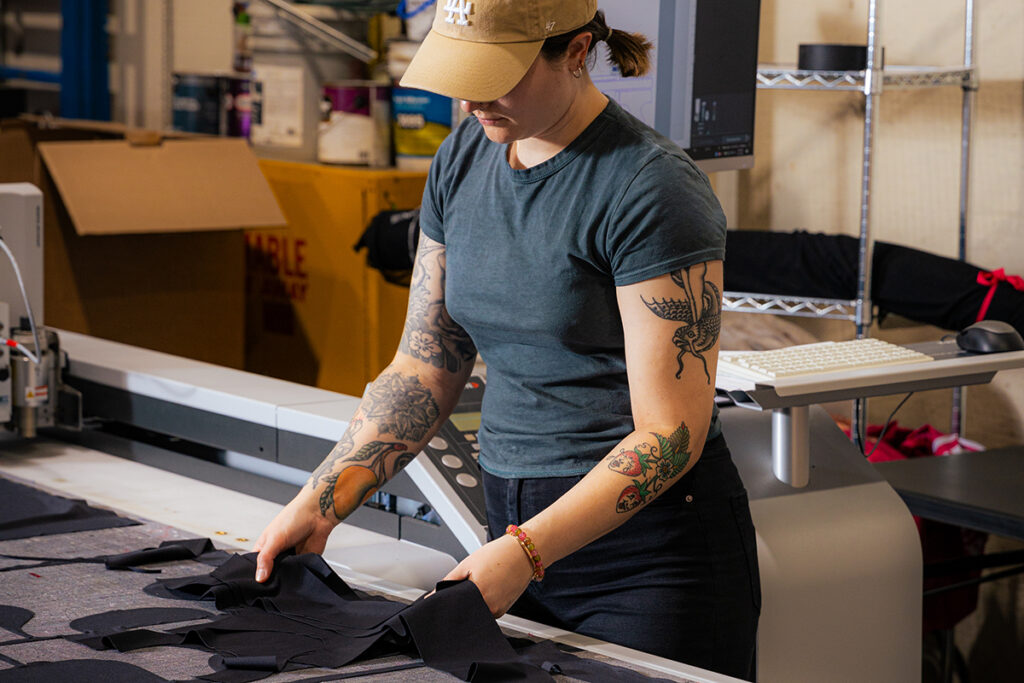
For some time, KC ranked second in the garment industry in the U.S., with only New York beating them out. But by the 1960s, due to widespread mechanization in many industries such as agriculture and manufacturing, as well as rapidly changing styles and trends, the system became more globalized, and much of the garment work was outsourced overseas. By the 1980s, KC’s once-buzzing garment industry had virtually disappeared.
Fast forward decades later and we have a fashion industry that is now inundated with fast-fashion brands like Shein or Romwe, who primarily make their large-batched garments with cheap materials and exported labor on assembly lines overseas.
However, with the pandemic and the 2020 social justice movement came many changes, and there has been an overall shift in personal responsibility in the years since, with many higher-end lines taking a more environmentally friendly and socially conscientious approach. Rightfully Sewn is such a company. With those ideals in mind, the garment business hopes to begin creating a community and help bring KC back to its former garment industry titan past.
Rightfully Sewn is perhaps the biggest supporter and player creating a contemporary version of KC’s past booming era of garment design and manufacturing.
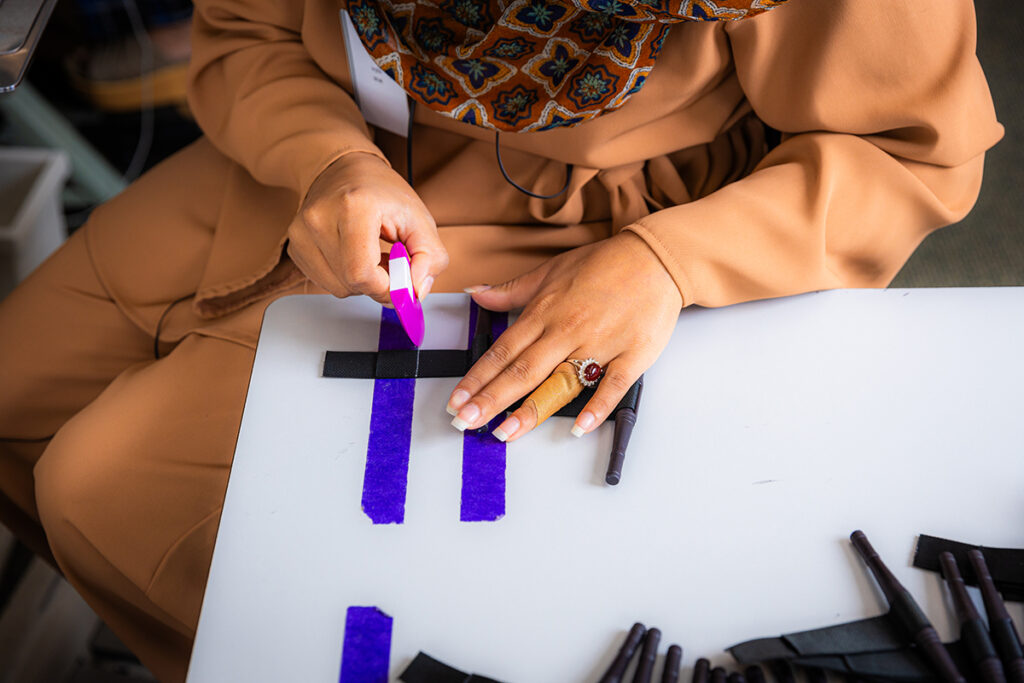
“Rightfully Sewn was created for workforce development, but they don’t teach [sewing] or anything like that in schools anymore, so that skill is actually being lost,” says Rightfully Sewn president and executive director Tyler Bennett. “We have begun to teach this to get people into the workforce with the skills to hopefully revitalize the garment district here in KC.”
Through training and various courses, Rightfully Sewn provides opportunities for individuals to gain specific skills to ensure they are prepared to enter the specialized industry. With this, they are hoping to reestablish KC as a major market for designers, especially as the demand for quality, American-made garments continues to rise.
“Since we were founded in 2015, our mission has never changed— it’s to be a workforce development program,” Bennett says. “Our main focus is to help [with] employment for refugees, immigrants, marginalized and at-risk individuals, and we do that in the area of garments, fine fashion and sewn goods.”
Nelly Don and a Living Wage
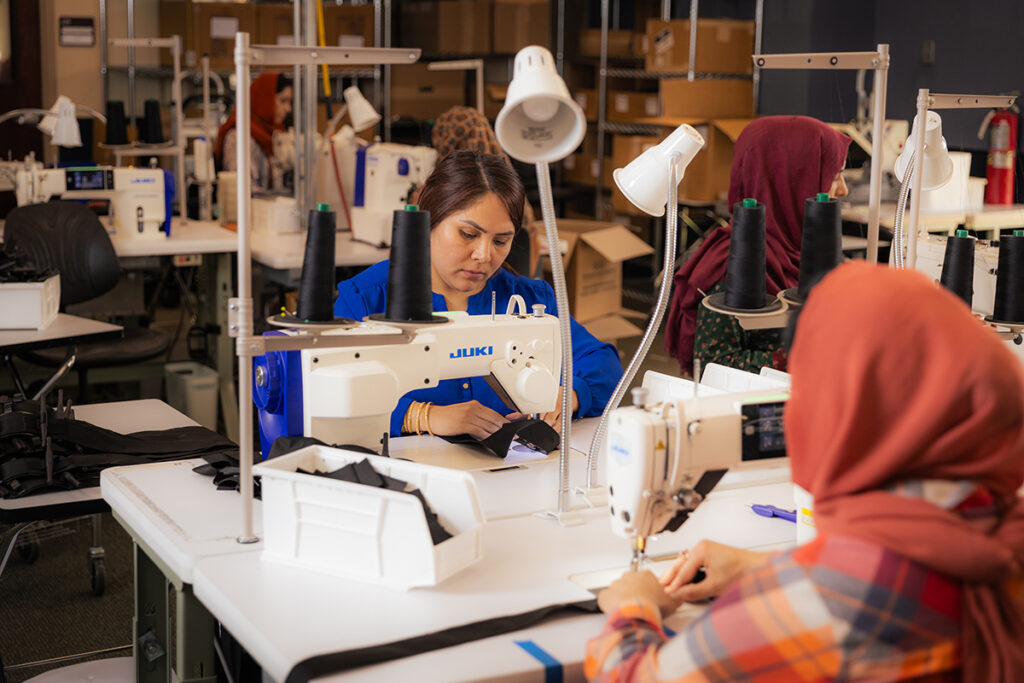
Rightfully Sewn’s mission is actually informed by a once-titan of the industry, Nell Donnelly Reed of the Nelly Don brand. Reed was an early entrepreneur of the fashion industry. At one point, Nelly Don produced seventy-five million dresses—the most dresses manufactured by a single company in the twentieth century.
“Nell made fashion accessible for the lower and middle classes with her house dresses and aprons and created a company that was a prime example of what ready-to-wear manufacturing should look like,” says Rightfully Sewn’s academy programs manager Lacey Daniels. “She hired skilled workers, provided a supportive environment and yielded high-quality garments.”
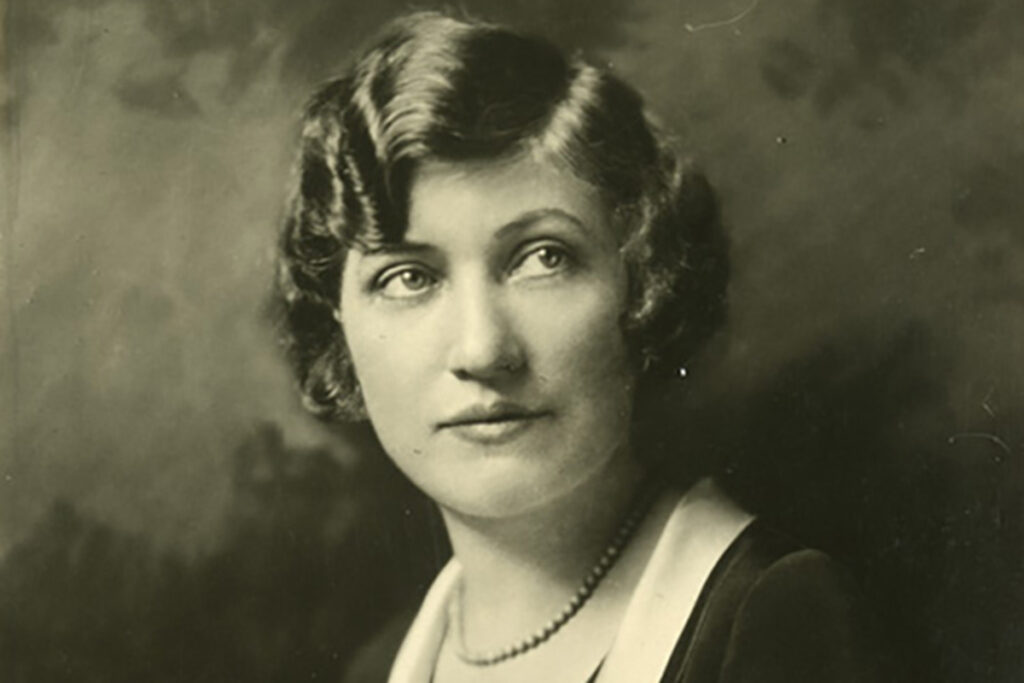
With the rich knowledge of Nelly Don and KC’s Garment District, Rightfully Sewn is trying to bring the same booming business plan to KC, with a more contemporary lens. Over sixty percent of Rightfully Sewn’s employees have refugee status, and the organization is recognized by the city of Kansas City as paying living wages with full benefits, an important piece to bringing the industry back while improving it with modern sustainablity sensibilities.
“In order to bring garment manufacturing back to the U.S., we need the workforce to do so,” Daniels says. “The academy strives to provide the education needed to help people learn the skills required, whether the goal is to work for a current large-scale manufacturer in the KC area, sew for a local designer or create their own pieces to fill a niche in their community.”
Seamstress in Training
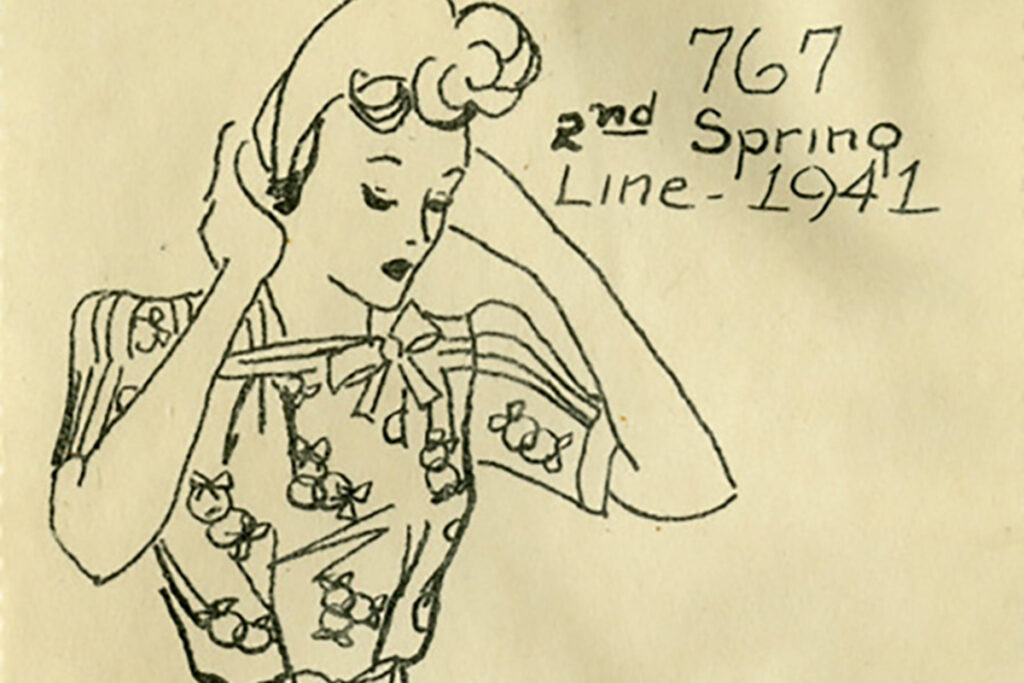
One of the many services Rightfully Sewn provides is a professional seamstress training program to help people learn valuable skills, as well as public classes and workshops for anyone who wishes to learn to sew. “Besides offering an option to learn a craft that one might otherwise have to attend fashion school for—[which is] not always a viable option—we intend to grow a greater understanding in the community of what goes into garment manufacturing, how to think sustainably about one’s purchasing power and hopefully show how accessible and fun sewing, upcycling and maintaining one’s own wardrobe can be,” Daniels says.
However, the journey to revitalization of a once-dead industry is no easy feat. It will take a conscious shift for the consumer and buyers to want to invest in more expensive but vastly more sustainable products and labor. “In order for Kansas City or any comparable city to truly become a manufacturing hub again, consumers need to be willing to focus on quality over quantity when it comes to their closet,” Ellis says.
There are many fashion designers locally in KC, but there’s not much manufacturing happening in KC anymore, which is the gap that Rightfully Sewn is trying to fill. They are hoping more local designers will come for their manufacturing, knowing that it is being made ethically and locally. Ellis and Daniels are confident that Rightfully Sewn and local designers have the skills to make the KC fashion industry a booming reality again.
“It can be easy to go straight to fast fashion because it’s cheap, convenient and trendy,” Ellis says. “But when you think about how much work went into an item and whether the amount you pay is worth that labor, materials, shipping and company markups, you realize that most of the time, fast fashion companies are relying on unfair wages paid to their manufacturing employees, and their products are usually not made to last long. Instead, you could put that money toward staple, high-quality, ethically made pieces that will last in your closet for so much longer, on top of helping contribute to the local economy and community. Helping consumers understand this is the first step in being able to have a garment industry that can thrive locally.”


